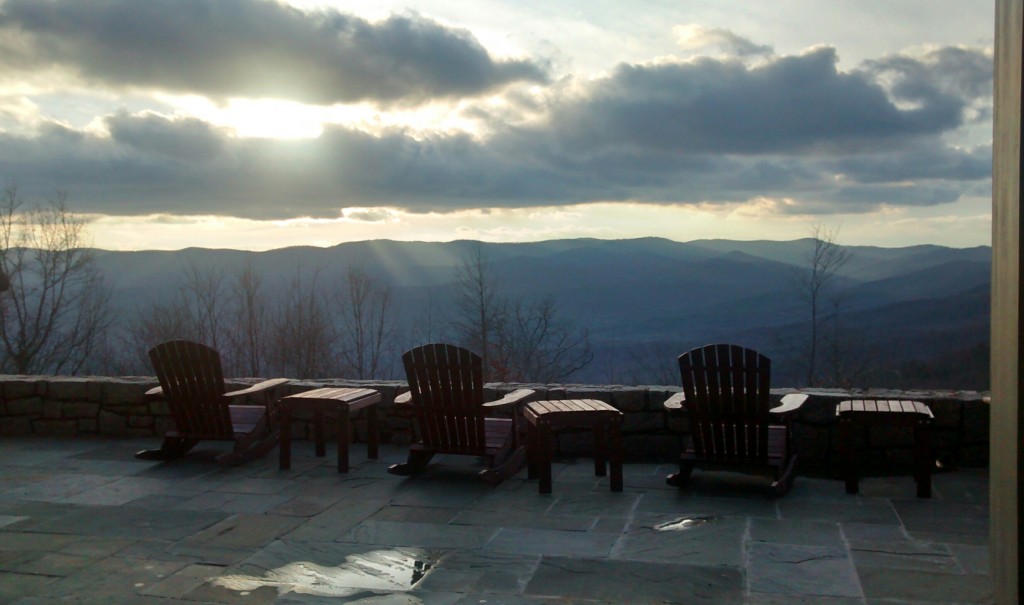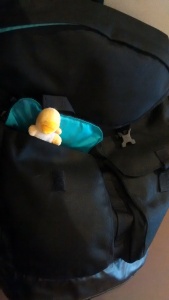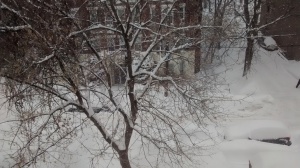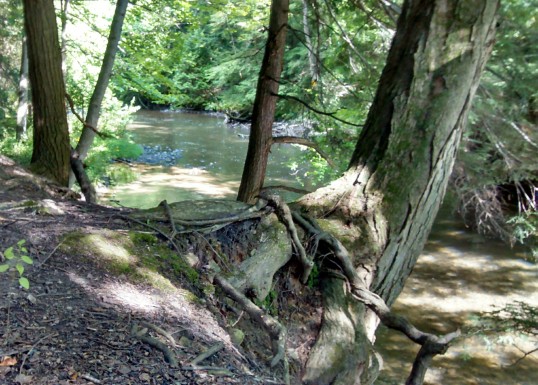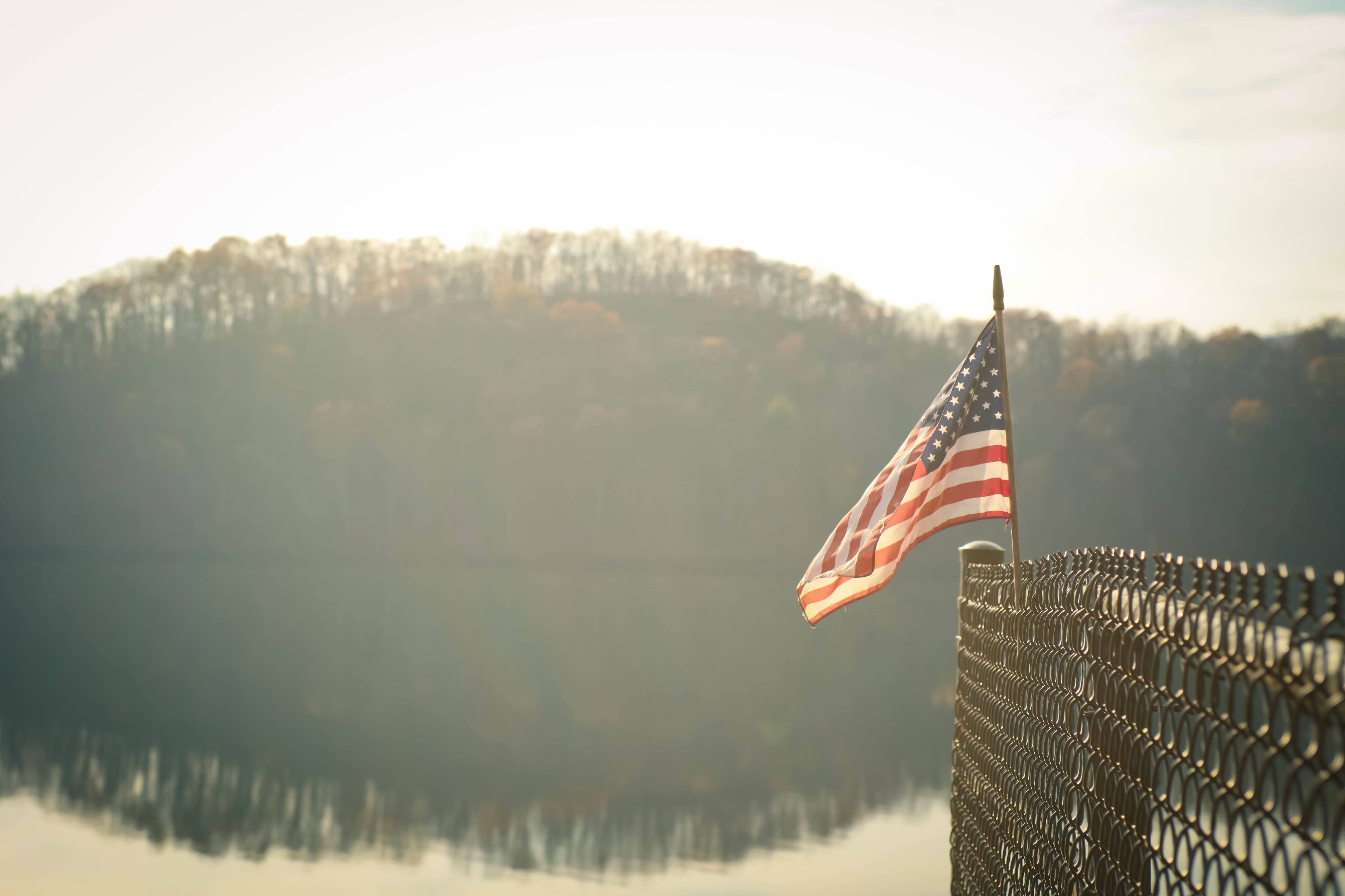 Dear United States of America,
Dear United States of America,
I first knew you as a thousand and one telephone poles whooshing past the car windows on the drive from Central Florida to Oklahoma City. Crossing America meant Cracker Barrel and, if we were lucky, a hotel with a swimming pool. Later in life, the drive began in Georgia, but the result was the same: it ended up in a foreign landscape, but familiar hugs. Visiting our family made us special and different in its own way; sometimes Oklahoma would come up in conversation and friends would remark that they’d never been anywhere near it. ‘I’ve been to Oklahoma,’ we could say, and we would tell about cows and cowboys, oil rigs and spicy food and about just how flat a place could be. America, you are a thousand and one places perfectly foreign and absolutely familiar.
You are the suburbs of my growing-up, tacky and prosperous and petty. You are the mountains I call my homeland, rolling and wise until the afternoon thunderclap. You are the county fair, the rodeo and the revival. You are the pool table where I drank Mountain Dew and listened to stories of jail, abuse, and abortion, where deep poverty grabbed me by the collar and dared me to not to look away. There, too, I learned honesty and hospitality and love from those storytellers, and they saved my life.
You are the burned-over industrial city where I brought a wool peacoat to the fight against blowing torrents of Lake Ontario settling under an eerie city glow. You gave me food stamps there, and every penny they saved me went to fund my first semester of seminary—maybe someday you’ll tell me somehow whether you are glad of your investment. There, there was a foreign place that could very well have gotten the best of me; but from the beginning there was, too, a man who felt like home.
You are the little town of a big city where I learned to sail, lived with 23 others in a mansion, rode the last Green Line train of the night, served food to Michael Pollan and Michael Dukakis, smoked cigarettes on a roof under the Citgo sign, and had the theological shit beat out of me. You are all the people I met the likes of whom I’d never known before, a school full of outspoken Koreans and Puerto Ricans and gays and tree huggers and Black people and even a South Dakotan, who grabbed me by the collar and loved me hard.
You are the wonders of the world I’ve seen without a passport: The Atlantic, Niagara Falls, Sedona, Lake Tahoe, Chilhowee Mountain, the Potomac, Half Dome, Eufaula Lake, the Grand Canyon, the Adirondacks, Amicalola Falls, the Rockies, the Pacific. Your land, America; if I ever despair entirely of your people, I will take solace in the land that bears us all up.
Of course I learned about you, too, in school, most often about your unprecedented birth and your unbearable schism only fourscore and seven years later. I am grieving for what I did not learn, like the family history everyone was embarrassed to tell a child; I am grieving every day for a different person who built this nation and in return received influenza, musket balls, beatings, broken treaties, broken bones, families rent, chains, poverty, lynchings, tenements and typhoid, internment camps, segregation, deportation, death. Still, with every grieving person I say that I will always dwell in grief and yet must always dwell in some kind of hope. There is no innocent country; and though I know now just how fantastical it is, I perhaps love the idea of you all the more now, America. That some hotheaded Yankees would plunk themselves down and Declare Independence as if they could just do such a thing. That they would brashly scribble that all men are created equal without knowing what they could possibly mean, and then invent the mechanisms for all of us to spend the next 240 years telling them what they had meant. Government of the people, by the people, for the people. You made it happen first, and it has always been a bold and silly, roundabout and beautiful experiment, burdened by evil but straining toward justice.
If there is one thing I can say for sure about President Obama, it is that he has not only governed, he has led this country. He called upon the best in us while demanding the utmost from himself, and we could always look to him when we needed an example of humility, grace, and strength.
In the waning days of his administration, President Obama repeatedly exhorted us to participate with him in the peaceful transfer of power, not sullenly or forlornly but by allowing the strength of our convictions to propel us to become better citizens. If you do not like your democracy, you can change it. Since the election, you already have. Keep on calling your representatives. Keep on learning about your local government. And keep on helping your neighbors cut their grass. Democracy and neighborliness are hard work, but they do not have to be lost arts.
America, we are tacky and brash and very few of our English accents are really all that nice-sounding. We are so many fractured groups, nothing we ever do will be cozy, or elegant, maybe not even civil. And in my opinion, we have spent a very long time doing a very bad job at this democracy thing. I’d say we elected an enemy of democracy. But he cannot destroy it. Democracy can only destroy itself.
Because I have loved so many Americas, I will not capitulate to President Trump’s monolithic vision of one. But because I have loved so many Americas, I will participate in its democracy, the only government I know that tries to honor them all. I will remain subject to this crappy and ever-evolving republic; I will capitulate to the will of my fellow citizens that he form the executive branch of our government. Then I will do everything I can to advocate that we make our democracy less crappy, from improving the education system that undergirds this form of government, to convicting fewer people as felons.
But I will not arrogantly pretend that I alone choose my president. To say that Trump is not my president would be to say that this is not my country.
And that, beloved, I cannot bear.
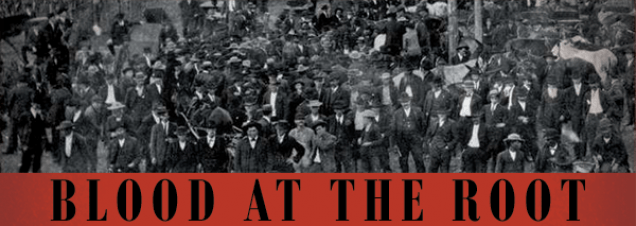
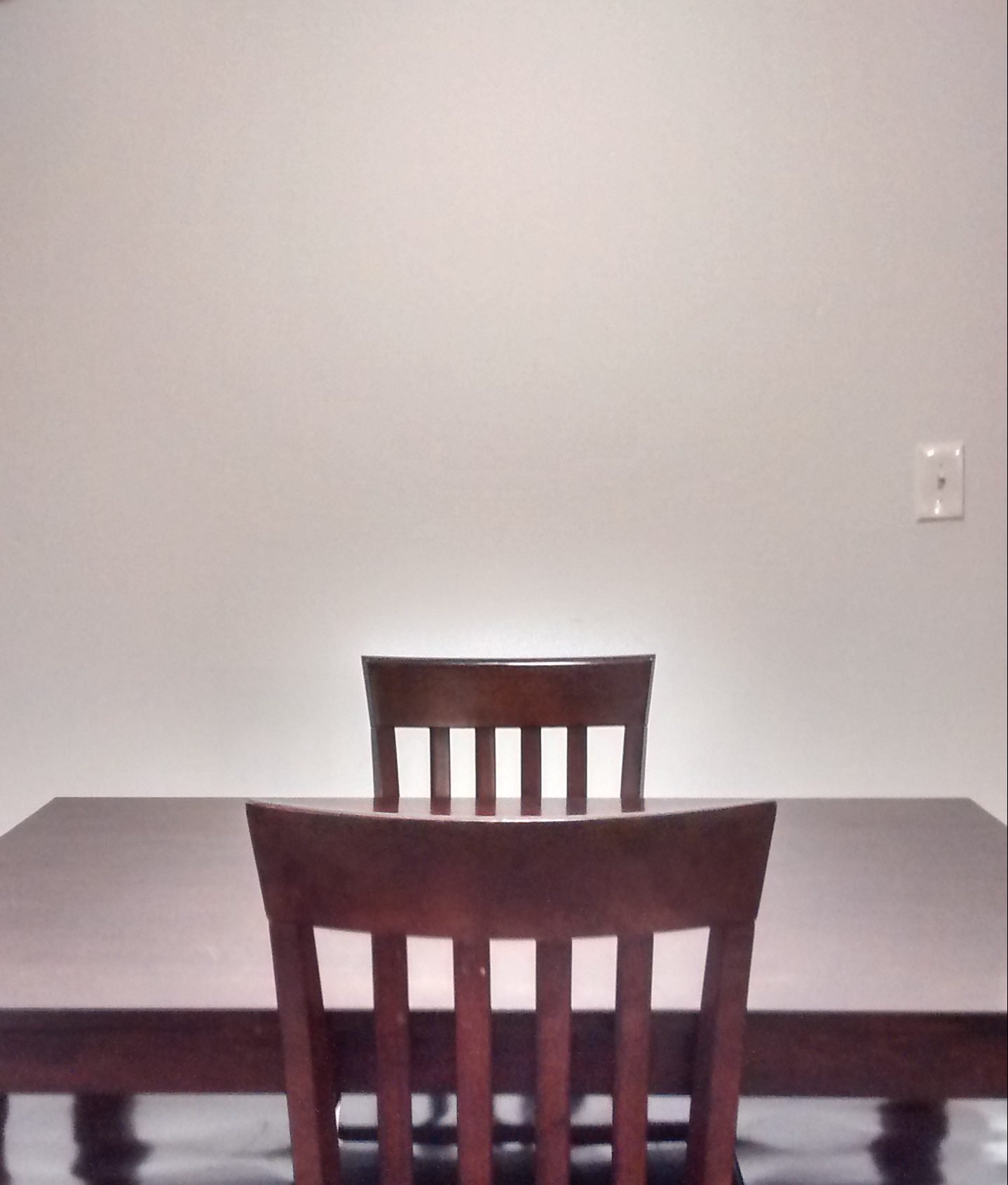
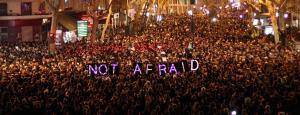 As we wrestle with these decisions, the main group of people under consideration here is the citizens of Georgia. Twenty-something tornado seasons have taught me that Georgians are not a people given to panic. We are a courageous, resilient, and occasionally even belligerent lot, and we will not be cowed by the tactics of extremists. We choose to follow the example of our own Dr. King by driving out hatred with love. We do not choose the hollow and pretended “empathy” referred to in your letter to President Obama. “Empathy” is a transliteration of the Greek word for compassion; both words literally mean suffering with. If taking risks and sharing the blessings of our rapidly growing economy (or as you prefer to say, our “valuable limited resources”) constitutes suffering, these are things we are willing to do for the sake of mitigating the horrendous pain of our fellow human beings. Courage means doing the hard thing, and we are prepared to meet that challenge.
As we wrestle with these decisions, the main group of people under consideration here is the citizens of Georgia. Twenty-something tornado seasons have taught me that Georgians are not a people given to panic. We are a courageous, resilient, and occasionally even belligerent lot, and we will not be cowed by the tactics of extremists. We choose to follow the example of our own Dr. King by driving out hatred with love. We do not choose the hollow and pretended “empathy” referred to in your letter to President Obama. “Empathy” is a transliteration of the Greek word for compassion; both words literally mean suffering with. If taking risks and sharing the blessings of our rapidly growing economy (or as you prefer to say, our “valuable limited resources”) constitutes suffering, these are things we are willing to do for the sake of mitigating the horrendous pain of our fellow human beings. Courage means doing the hard thing, and we are prepared to meet that challenge.